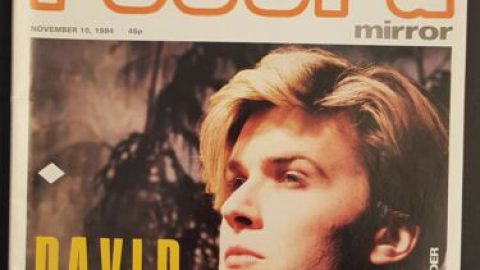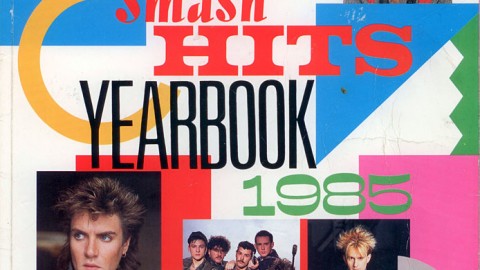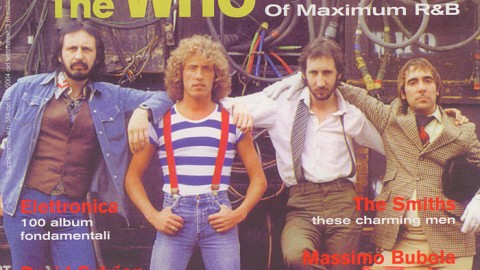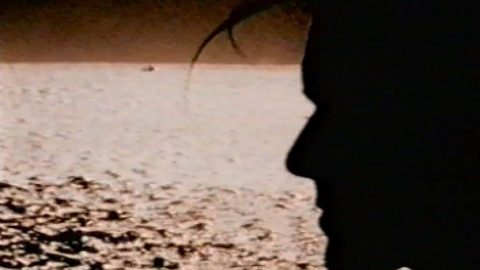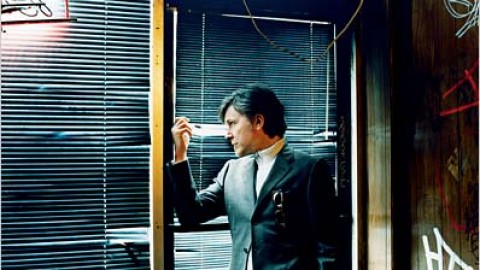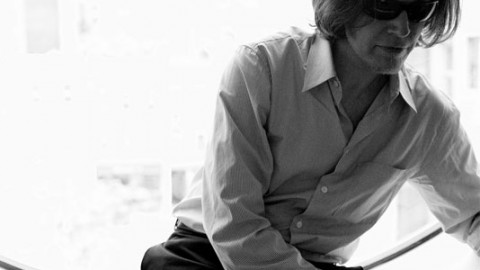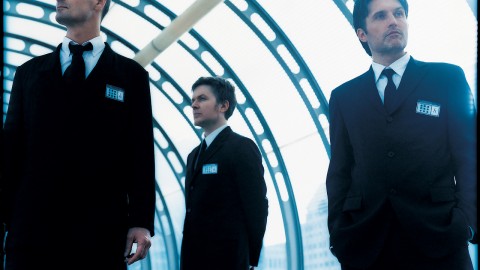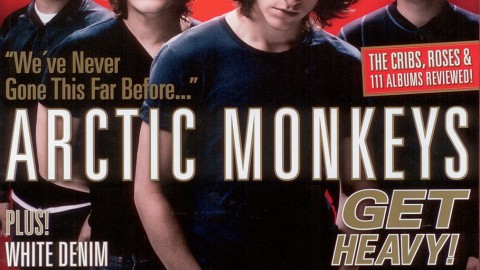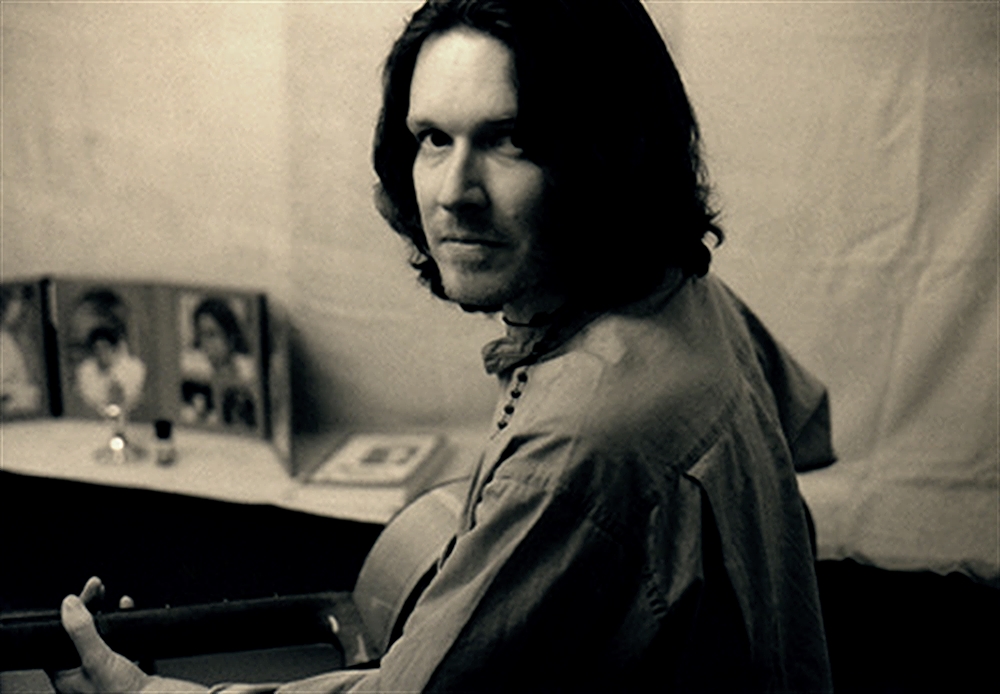
The South African Radio -David Sylvian Interview by Derek Richardson (10.98)
with permission transcribed by Mark Shanahan
DR: The new album, Dead Bees on a Cake, coming from Virgin: when’s it being released over there – do you know?
DS: I think it’s on February 2nd, with a single coming out in January.
DR: How was the making of the album – was it a long process?
DS: It was drawn out over a period of three years. I couldn’t tell you how long it actually took to record. I mean if you condense the time I actually spent working on it, it may just come down to a matter of six months; I really don’t know. It wasn’t an easy process because well, things just didn’t work smoothly from the outset, I suppose. I was working also on a system called Protools (sp?), which is a computer-based system
DR: Yeah – I know it well (laughs).
DS: Yeah, well then you know that it has a lot of faults and you’re forever having crashes and you know, hardware/software problems and so there was a lot of that to keep up with. And also my life was just becoming so interesting — that my private life – so much was going on in it that I would just shelve the album for months at a time before getting back to it. So, it was a combination of those three things that made it take quite so long to complete.
DR: In terms of your private life, that must be the birth of your daughter? Is that right?
DS: That is in part what I’m talking about – I have two daughters now.
DR: Oh really?! Well, congratulations!
DS: Thank you. So yeah — that was obviously one of the key moments in my life. I think that the five years that I spent in Minneapolis, Minnesota were the five happiest of my life and very eventful – so much happened to me while I was there. So many key events, so major turning points took place during that period and during the recording of this album. Somehow the album embraces all of that; so many different aspects of my life – and I think that’s why it’s quite as rich as it is – and why I was quite happy to keep coming back to it. I mean — obviously three years is a long time to keep coming back to the same material, but I felt quite happy with the fact that it was that strong – that I was still happy to continue with it. Others I kept rewriting — new songs — new songs and I would want to put that over on the album. That slowed the process down a little, always coming up with new material. Then it would take time to complete and all the rest, but that documented an important period in my life and goes beyond that. (Laughs) It was worth the three years – I’ve learned an awful lot about the process of record making in that three years also, so the process was an educational one and very rewarding in the long run, although frustrating at times.
DR: I’m sure you’re going to make your fans very happy considering the album does have fourteen tracks on it.
DS: Yeah
DR: And it must be as you’ve said, there must have been a helluva lot that happened in your life to come up with all this – and new ones. I’m sure there are a couple of extras that you didn’t manage to get on.
DS: Yeah, sure. a lot of the material started out – I started writing with my wife Ingrid – we were working on material together for some time prior to Ameera, our first daughter’s birth. And some of the material I wrote for her she didn’t feel was right for her. So, I took that material and worked it up for myself. Pieces like ‘I Surrender’ started out as pieces for Ingrid even ‘Pollen Path’. And so the some of the material’s been around for five years and so I was able to live with it for a long period of time and see its strengths or weaknesses and work and work it until I was quite happy with it. And working at home which is what I was in the main doing gave me that freedom to work on the material until I was happy with it. Whereas because there wasn’t quite so many pressures on me to complete it.
DR: What inspires you to create the music that you like obviously that’s been a lot of your your personal life for this album, would you say?
DS: It is, yeah. Personal experience – nothing can replace that. And I think that is the primary impetus when it comes to writing. Obviously, you don’t want to just write a snippet of autobiography, you want it to be – to go beyond that -you want other people to relate it to their own lives and it to become valuable in their own lives. So the idea isn’t just to – to write about my life in a rather narrow sense – it’s – so that it can’t be interpreted in any other way. It’s definitely the impetus for writing, for sure. I’m hoping that I’m writing in such a fashion that people can relate it to their own life.
DR: How do you compare the writing of songs nowadays as to the stuff you were writing in the days of Japan.
DS: (pause) It’s so enormously different – it’s hard for me to compare it. I can tell you the process of growing through the early days of Japan up until now. But it’s — I can’t really compare it. It’s – it’s it’s that the person who was writing the material for Japan wasn’t fully formed as a person — you know – still growing, wasn’t fully conscious. And was actually conscious – if anything was consciously hiding his true self, so I went through a process of slowly revealing myself more and more to myself in my writing and feeling less and less vulnerable in the process of doing so – being strong enough to write directly about my own experiences – and to to, you know, expose certain aspects of my my mental state and my emotional state to the world through the songs. It didn’t come easy to me at first, but now I’ve – I overcame that problem many years ago and I find it very very natural to write directly from experience.
DR: Just to go back just a little – just for a while. Just curious about your days of you know, your years that you spent with Japan – were they fun times, enjoyable times?
DS: “Big pause” they were enjoyable at times, yeah. There was – I mean we were very close as people – I mean we lived out of each other’s pockets. We wouldn’t go anywhere without one another; we were family. Very close indeed. So, yes, there were wonderful times together, there were very hard times and very bitter times. So, we ran the whole range of emotions, I guess, together. Very intense periods together – especially working in the studio
DR: Yeah, sure
DS: that used to be quite intense
DR: Yeah, sure – happens to every band, though, huh?
DS: I think so, but there was also a lot of humor. I mean – take Rain Tree Crow as a case in point. Because there was a certain acrimony resulting from the completing of that album, I think people may get the impression – those who’ve heard of the album – might get the impression that that the whole process was an acrimonious one when it was – it really wasn’t. There was so much good humor in the making of that album
DR: There was a lot of bad press – well, I mean from my point – being in South Africa and just reading kind of stuff. I picked up a lot of there were a lot of bad vibes within the recording of Rain Tree Crow. Now we we’re all on the other side of the world and you just read and see things, but you don’t actually know the truth because the Rain Tree Crow album for me was an exciting time, quite frankly, because – you know – you guys were getting back together, but under kind of a different perspective.
DS: Yeah well, I’m sure that the things that you read colored your impression of the album. At least it might do which is unfortunate because it wasn’t made in that spirit. It – there was so much love in it, so much good humor and – and so much excitement in the creating of the record. The falling out came in the latter phase, in the mixing of the record, which doesn’t affect the quality of the record.
DR: Sure, yeah
DS: It was all on tape already. So, as sad as I am about the falling out, it really did not, you know, affect what went before it. So it’s funny how these things work out and the kind of impressions people might get of the process of recording. Where something like ‘Tin Drum’ really was a lot harder to work on — in terms of , like, the strains it put on our relationships with one another just because it was a really intense process of making that record. There was we were learning new ways of writing, of arranging the pieces and also Rich and I were working on how to program new synthesizers and get the most out of them.
DR: Yeah
DS: So, It was a very slow and laborious process and I think, you know, it put a strain on our relationships at the time, with one another. That really was a difficult album to make.
DR: Well, it’s nice to be enlightened, you know, about the aspects and like that because, you know, the press can, you know, really distort the facts – and normally they do anyway
DS: mm-hmmm
DR: You know, so it’s nice to know. Do you have a are you in contact with a I know Steve Jansen, as you want to call him, is your brother
DS: Yeah
DR: Do you keep in touch with him?
DS: Ah, yeah – I’m in touch with Steve; I’m not in touch with Mick or Richard.
DR: Right. Then, Dead Bees on a Cake – where did you record the album?
DS: The majority of it was recorded at my home.
DR: Is that – was that – are you back living in the U.K. or in the States?
DS: In the States.
DR: Ah, right. Is that in Minneapolis as you mentioned?
DS: Minneapolis. I started out in Minneapolis, I now live in California. It was recorded in Minneapolis and California. It was also recorded in Sakamoto’s basement in New York, where he has a studio. It was recorded in Real World Studios
DR: mmm
DS: Ah, so we moved around a bit in the process. But, most of it was done at home.
DR: I’m sure you must have pulled some hair out as well through that process – with the technical aspects as you were saying
DS: Yeah – sure. The constant crashes and the rest of it, but we finally got to a point where we ironed most of them out and just learning – I really enjoyed working with Protol. Although there were drawbacks.
DR: Sure.
DS: Because some – a lot of the sessions didn’t go well, initially. It allowed me the opportunity to go back and manipulate the performances until I was happy with them. In ways that wouldn’t be possible using tape, so I mean – I’m really blessed that I was working with Protools at the time. In fact I would have been at a loss as to know what to do – with the material that I had, so I wouldn’t work with any other system right now – I really enjoy the process.
DR: Yeah. You mentioned Sakamoto, now Ryuichi Sakamoto is a long-time good friend of yours.
DS: Yeah.
DR: What what did he do on the latest album with you?
DS: We worked on the string arrangements together. He contributed some Fender Rhodes and some synthesizer to the album.
DR: The previous people you’ve worked with in the past, you know if I had to look at Virginia Astley
DS: Uh-huh
DR: And Holger – I don’t even want to try to pronounce Holger’s surname (laughs).
DS: Working with Holger was important. I worked with him on Brilliant Trees; that was the first time I met him. He was called in without a specific role to play. To just kind of throw a spanner in the works, really and bring the unexpected. Which he did – in spades, so that was wonderful. And we got on very well and then continued the relationship on an EP that I did called Words with the Shaman.
DR: Yep.
DS: And it just developed on from there. I finally ended up in Cologne working with him and improvising music together which we finally released as Plight and Premonition. We got so much out of working with one another from my point of view – just the aspect of the improvisatory nature of the work was fascinating. To sit in an open room and just have access to any given instrument and just pick it up and start recording from that moment on – was wonderful. I hadn’t worked that way before improvising directly to tape. So, I really wanted to explore that further and that’s what led into the Rain Tree Crow working with the band, with the same concept. So, I learned a lot from working with Holger and, most of the time, you take away a little something from working with another musician whether it works out musically or not, you know, there’s always something to be gained from the experience. But Holger’s influence on my life has been very beneficial.
DR: Who else have you worked with, artist-wise, on Dead Bees on a Cake? Or was it basically just you and Sakamoto?
DS: No I worked alone for most of it, but I had input from Bill Frisell, Marc Ribot, Talvin Singh uh, Kenny Wheeler. And, there’s a drummer called Jed Lynch, Scooter Warner in New York, Chris Bandobie (sp?) played double bass on a track but, as I said, most of the time I was working alone.
DR: What does David Sylvian listen to when he’s at home?
DS: You know, I listen to a lot of music. I mean, I ‘m one of these people that, you know, buy a handful of CDs just about on a weekly basis. I don’t listen to radio or TV, so this is how I learn about what’s going on in the world – in the world of music. I listen right across the board, whether it’s jazz, world music (as they describe it), pop music – whatever. I mean, I listen to an awful lot.
DR: Do you listen to your music? Say Dead Bees on a Cake gets released in in, as you said, in February in the U.K. – will you go back to that and put it in your CD player? Or do you just leave it for what it is, as a piece you’ve created?
DS: I don’t listen to it. I mean, the day it’s released will probably be the last day I listen to it. I tend to find that’s the day I let go of it; it no longer belongs to me, so it’s kind of the last day I have intimacy with my own work. And, from that moment on, it doesn’t belong to me anymore, so that’s generally when I stop listening to it.
DR: You planning to do any tours for the album – next year?
DS: I’d like to – very much. I’m looking for musicians right now. It’s something I would really love to do, possibly starting in March of next year.
DR: Would you consider coming to South Africa?
DS: I would love to come anywhere that’s interested in having me, to be honest.
DR: Well, we are – we are in a big way!
DS: OK – good. I’ll let them know — the powers that be.
DR: What are your hobbies, then? Do you have something that you have an outlet for? I’m sure your family is a major one (both laugh).
DS: Family is, for sure. Family takes up a lot of time and energy and it’s something – obviously – I love putting my time into because we’re very rarely apart. We’re one of these families that just enjoys one another’s company so much and we share everything, so we do things together. I mean, we paint together – we sit down and we’ll paint. I mean, I love painting with my daughter – my five year old, who is also into painting. So hobbies — I don’t really know if I described what I do as hobbies, but it would probably fall into that category. When I’m not writing, I tend to find other outlets for the desire to create something – and that’s liable to be photography or painting or whatever else is in the pipeline. You know, creating installations, as I said, was a very enjoyable
DR: Yeah sure.
DS: work.
DR: You’ve been with Virgin for gee, years and years and years. How’s that relationship – they must I really feel from an outsider’s point of view that they really respect you as an artist for the stuff you do. Because – by no means – you’re not a ‘main stream’ artist. I don’t think you ever want to be that. But the relationship you have with them – how would you describe that?
DS: Um it’s been good – in that, over the years I’ve been allowed to do exactly as I choose and follow the avenues that I choose to follow – without any intervention. There’s never any pressure on me from the record company – in any way — during the process of making a work or delivering a work. I could have delivered this work in another five years – it would have been all right by Virgin, I’m sure. The pressure comes on to promote (laughs) the album, which I’m so reluctant to do
DR: Yeah – that’s a difficult one for you, isn’t it?
DS: It is, yeah; it always has been. But um
DR: Even more so now with the family
DS: More so now because I’ve been away from it — and I’ve enjoyed being away from it. You know; I’ve enjoyed creating the work, but I’ve also enjoyed the anonymity and the privacy
DR: Yeah.
DS: Afforded during that period of time, so it’s always difficult to jump back into the ring. Maybe it’s going to get more so with age (laughs) – I don’t know. But it’s – you know, anyway – as I was saying, I think that it’s a mutual respect there and it’s worked well up until now.
DR: Well, we just hope you do, you know, want to get back on the road and hopefully, you know, sometime next year get down to South Africa.
DS: I certainly would, yeah; you needn’t worry about that.
DR: (laughs) David Sylvian, we wish you the very best with Dead Bees on a Cake and thank you so much – so much for taking the time to chat to us here.
DS: My pleasure.
DR: Thank you –take care.
DS: Bye-bye now.

